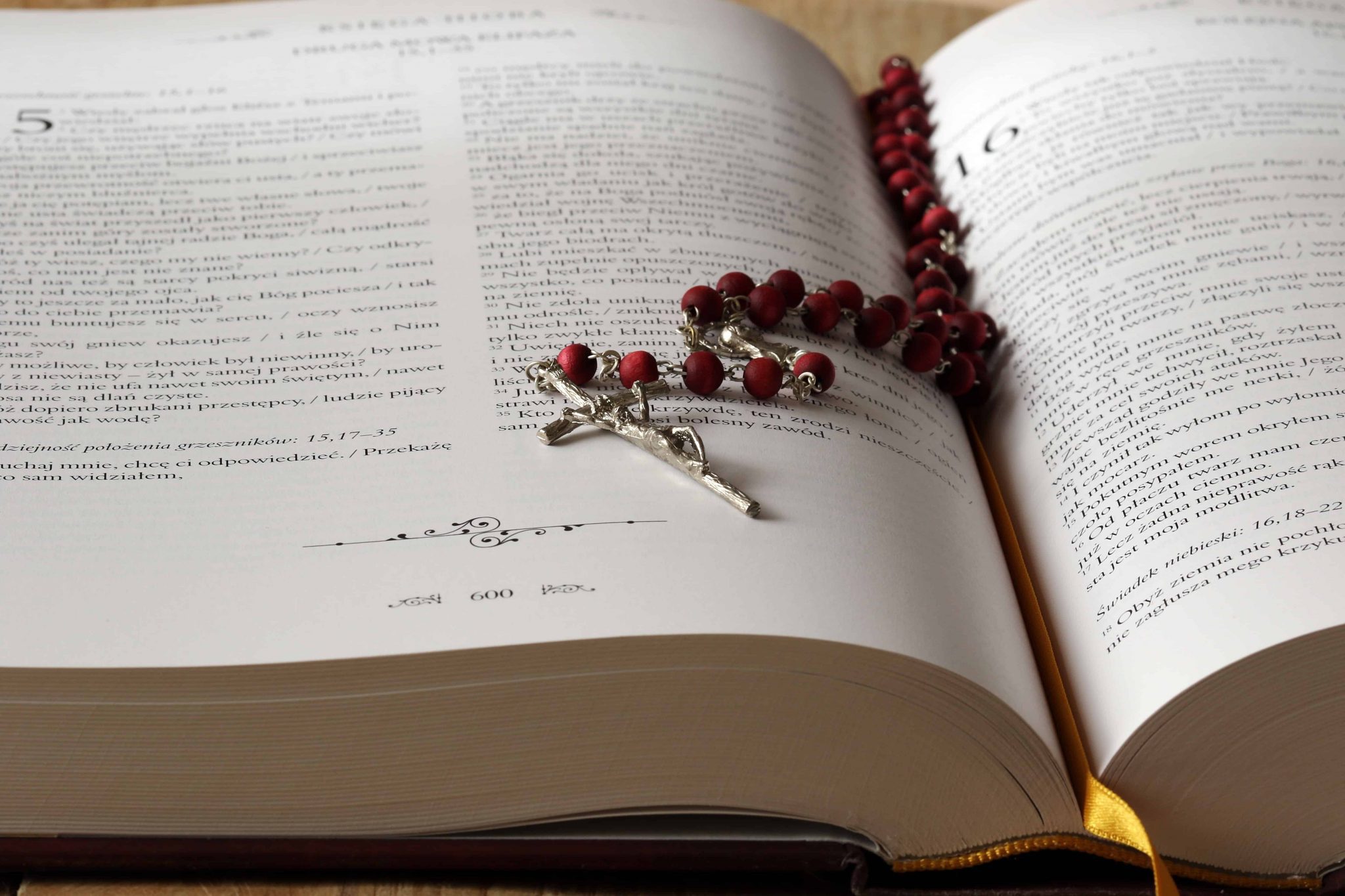Twentieth Sunday in Ordinary Time
“There was no water in the cistern, only mud, and Jeremiah sank into the mud.” —Jeremiah 38:6
“No water, only mud” — is that a description of your life? Are you in a hole, sinking in the mud, starving to death spiritually? (see Jer 38:9) You need to add water to turn your mud into a mud puddle, and your mud puddle into a fountain of living waters (see Jn 4:14).
Most of us have already received the life-giving waters of Baptism, but we should renew our baptismal promises. We have already done that on Easter Sunday, but maybe we didn’t realize what we were doing or have stifled the Spirit since then (see 1 Thes 5:19). So let’s renew our baptismal promises and let the living waters flow and lift us out of the mud of sin.
Jesus proclaimed that He had a Baptism to receive (Lk 12:50). By this, He was referring to the Baptism in the bath of pain on Calvary (see Mk 10:38). When we renew our baptismal promises, we are also committing ourselves to suffer with Jesus and for love of Him. Aware of the suffering involved, renew your baptismal promises now. Reject Satan, his works, and his empty promises. Profess your faith in your loving Father; in Jesus as your Savior, Lord, and God; and in the Holy Spirit. Sprinkle yourself with holy water. Get out of the mud, out of sin, and out of prison. By faith, add water.
Nineteenth Sunday in Ordinary Time
By preparing our hearts to serve God each day, we will not be caught off-guard when the time of testing comes (Lk 12:36-40). It will be second-nature, in fact, our new nature, to “seek to serve Him constantly” (Ps 105:4). Daily we ask for the grace to “serve the Lord with gladness” (Ps 100:2).
Each day, give to God your life, will, health, desires, hopes, and dreams. Then, when the test comes, your daily practice has trained your nature to offer everything up to God. Our Master’s will is “known beforehand” so we “might have courage” (Wis 18:6) and be “ready” when the test comes (see Gn 22:1).
God is “the Tester of our hearts” (1 Thes 2:4), and we are the students. He uses our trials “to test [us] by affliction and find out whether or not it was [our] intention to keep His commandments” (Dt 8:2).
Life in Christ is an open-book test. We find the answers in the inspired Sacred Scriptures and in the Sacred Tradition of the Church. We should set aside time each week to study our faith, even daily if possible.
Eighteenth Sunday in Ordinary Time
King Solomon, who is credited with writing the book of Ecclesiastes, was one of the richest people in history (see 1 Kgs 10:14ff). He had seven hundred wives and three hundred concubines (1 Kgs 11:3). He could get anything he wanted any time he wanted. Many people today are trying hard to become more like Solomon. They want to be able to relax “for years to come,” “eat heartily, drink well,” and enjoy themselves (Lk 12:19). Solomon, who ought to know, says they are fools (see Lk 12:20), for “all things are vanity!” (Eccl 1:2)
“What profit does he show who gains the whole world and destroys himself in the process?” (Lk 9:25) “You are not to spend what remains of your earthly life on human desires but on the will of God. Already you have devoted enough time to what the pagans enjoy” (1 Pt 4:2-3). Therefore, “set your heart on what pertains to higher realms where Christ is seated at God’s right hand. Be intent on things above rather than on things of earth” (Col 3:1-2).
Seventh Sunday in Ordinary Time
“Lord, teach us to pray.” —Luke 11:1
Is the Lord satisfied with your prayer life? Pope St. John Paul II, at the end of his first encyclical letter, maintained that our prayer must be “great, intense, and growing” (The Redeemer of Man, 22). He also emphasized that the Lord wants our prayer to be combined with fasting, for the Lord has decided at this time to make prayer and fasting the first and most effective weapons against our culture of death (The Gospel of Life, 100). According to these criteria, is your prayer life satisfactory to the Lord?
To pray as the Lord wants us to pray, we must see God as our loving Father. That is the first thing Jesus taught us about prayer (see Lk 11:2). We must be aware that our Father sees our prayer and fasting (Mt 6:6, 18). Abraham stopped short in his prayer for the cities of Sodom and Gomorrah to be spared destruction. Possibly, his prayer was limited because he:
- wasn’t sure whether God was just (see Gn 18:25),
- was even less sure of God’s mercy, and
· projected his own interior conflicts onto God and thereby accused God of being impatient (Gn 18:30) and angry (Gn 18:32).
We who are in Christ can and must pray always with loving, tender confidence in our Father. In that way, we will pray as we ought (Rm 8:26).
